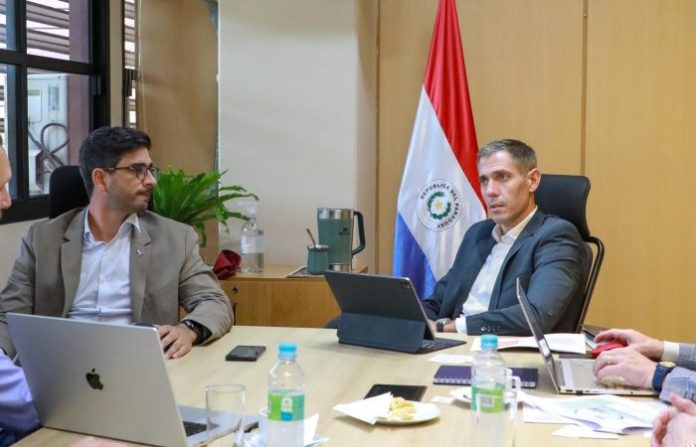Asunción, Agencia IP.- According to Deputy Ministers of Industry and Commerce, the new commercial dynamics resulting from the restructuring of reciprocal tariffs implemented by the United States could be leveraged through a new investment attraction strategy aimed at countries with higher tariffs that might be interested in relocating part of their production matrix to territories like Paraguay.
The Deputy Minister of Commerce and Services, Rodrigo Maluff, stated that Paraguay is accustomed to the type of trade measures recently announced by the United States, and the 10% impact is manageable. He emphasized that the country should view this situation as an opportunity to invite other countries to invest.
Maluff mentioned that, upon a quick look at the scenarios, there should be no immediate changes in the meat sector, as the production matrices in this sector are not immediate. It would take American producers between 18 and 24 months to decide whether it is feasible to invest in increasing production.
In this regard, he added that Paraguay must demonstrate that it can produce more, make the most of the available quota with the U.S., and encourage them and other international industrialists to come to invest in the country, produce from here, and export their products worldwide.
He assured that the Ministry of Industry and Commerce analyzes the impacts sector by sector and product by product, managing and navigating the current commercial situation.
Attraction strategy
Meanwhile, the Deputy Minister of Industry, Marco Riquelme, explained that industries with high export capacity will not intend to shut down their operations but will seek countries with a trade deficit and positive relations with the U.S., such as Paraguay. This would allow Paraguayan companies to diversify their markets and minimize the impact of the new tariffs. «Our strategy should be to attract investments by focusing on Paraguay’s benefits, such as its young workforce, tax advantages, and accessible energy,» Riquelme said.

